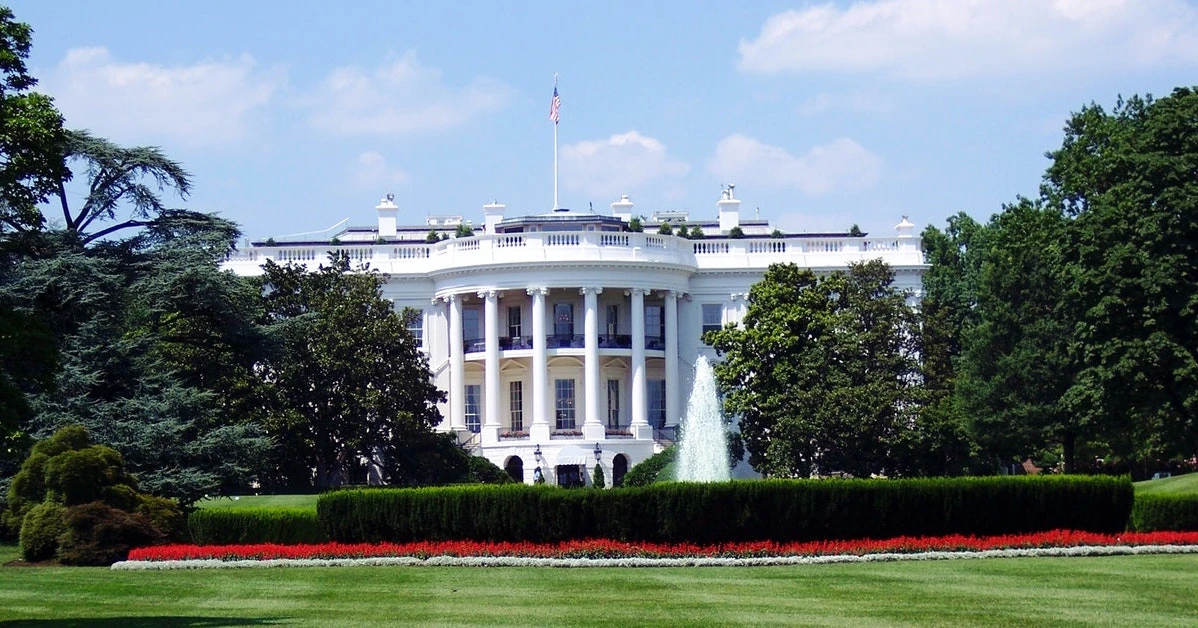The Lively Blog
SIGN UP FOR OUR
Newsletter
Stay up to date on the latest news delivered straight to your inbox
Understanding How the Consolidated Appropriations Act of 2021 Affects FSA Administrators
Sarah Laoyan · January 14, 2021 · 6 min read

On December 27, 2020, President Trump passed the [Consolidated Appropriations Act of 2021](https://rules.house.gov/sites/democrats.rules.house.gov/files/BILLS-116HR133SA-RCP-116-68.pdf). This bill combines reauthorizations of several budget line items with $900 billion in COVID-19 related relief. The good news? This bill passing allows for additional leniency to rollover or carryover rules as it relates to [Flexible Spending Accounts](https://livelyme.com/guides/flexible-spending-account-fsa) (FSAs). Here’s what that means for those employers who offer ANY type FSA: ## Key Takeaways - All FSA (Health, Limited Purpose, and Dependent Care) plan years ending in 2020 and 2021 may permit FULL CARRYOVER of unused funds with no penalty - All FSAs may permit a 12-month grace period with no penalty - A Health FSA participant terminating participation during a plan year may spend down unused funds for the remainder of the plan year, if the Plan permits, for any plan year ending in 2020 or 2021. - If a Dependent Care Plan’s Plan Year enrollment was prior to January 31, 2020, and a participant’s qualifying dependent turned 13 during such Plan Year, the participant is eligible to enroll in and use Dependent Care FSA for the subsequent Plan Year to cover such dependent. - A Plan may permit participants to change elections in the Plan Year ending in 2021 without experience a qualifying life event - A Plan may make retroactive amendments to accommodate any of these changes of the rules. __NOTE:__ All of these extensions are OPTIONAL - meaning employers have the choice to provide these benefits to any of their employees who currently fit Plan descriptions. ## Specific Rules for Carryovers, Grace Periods, and Enrollment Jump to: - [FSA Carryovers and Grace Periods](#fsa-carryovers-grace-periods) - [Extended Run-Out Period for Claims](#extended-run-out-period) - [Dependent Care Eligibility Extension](#dependent-care-eligibility-extension) - [Election Changes Without Qualifying Events](#election-changes-without-qualifying-events) - [Retroactive Plan Amendments](#retroactive-plan-amendments)
FSA Carryovers and Grace Periods
A Health (or Limited Purpose) FSA can either have a carryover or a grace period, or no form of extension at all. A Dependent Care FSA may permit a carryover period. These rules have not changed with this new legislation. Reminder that these extensions are OPTIONAL for employers, meaning that you have to choose either a carry over, grace period, or no extension at all to provide these options to your employees. What has changed is the maximum amount you can carry over or the duration of the grace period. #### FSA Carry Over/Rollover Period for 2021 and 2022 Any unspent funds in the Plan Year ending in 2020 to the Plan Year ending in 2021 __can be carried over in full__. This amends the current rule that no more than $550 can be carried over from one Plan Year to the next. This is also true for Plan Years ending in 2021 over into the Plan Year ending in 2022. #### FSA Grace Period for 2021 and 2022 An FSA grace period is a fixed period of time after the end of a Plan Year during which expenses may be incurred and reimbursed while still “counting” for the Plan Year that just ended. The typical FSA grace period is two and one-half months (2.5 months). This new change to the rules for administering an FSA allows for Plans with Plan Years ending in 2020 or 2021 to extend the traditional grace period to __12 full months__. __Important Note:__ The law does not specifically say that FSA grace periods can be extended *up to* 12 months, rather it says to 12 months. Double-check with your legal counsel if considering expanding your grace period to any other time besides the traditional 2.5 months or 12 full months.
Extended Run-Out Period for Claims
Typically, when an individual enrolled in a specific plan ends their participation in a Plan as a result of losing employment or losing eligibility for the Plan for other reasons (such as a reduction in hours below Plan’s definition of “full time”), the individual’s ability to make new reimbursable claims ends after a short administrative period. With the Consolidated Appropriations Act of 2021, for individuals who were terminated from employment in the __calendar year__ 2020 or 2021, a Plan may permit such individuals to continue to make claims and be reimbursed for the duration of the Plan Year (including any grace period). This means if an employee had an FSA with unspent funds, and then were let go, they would still be eligible to make claims and be reimbursed through their FSA until the end of the applicable Plan Year. Be extremely clear to provide employees with the end date of your specific plans. If a Plan adopts this change, this exception will also apply if an employee is terminated at any time during the 2021 plan year.
Dependent Care Eligibility Extension
This section is the only change that does not appear to require a specific Plan document amendment. This change applies to employees enrolled in a [Dependent Care FSA](https://livelyme.com/what-is-a-dependent-care-fsa) (DCFSA) that had its regular enrollment period ending on or before January 31, 2020. A participant may have become eligible and enrolled during a later special enrollment period and still qualify for this extension. As long as the DCFSA Plan Year in which the individual is enrolling has concluded their regular enrollment period by January 31, 2020, they are eligible for this extension. Typically, a DCFSA requires the dependent to be under the age of 13 for expenses to qualify for reimbursement. The Act has amended the age to be 14, if your Plan Year falls under 2020 or 2021. This rule also applies to any applicable grace period of said Plan Years.
Election Changes Without Qualifying Events
Typically, an eligible individual has a limited number of options for making an election (either enrolling or declining to enroll, increasing or decreasing the amount elected) into an FSA plan. Under normal circumstances, you can enroll during a Plan’s regular enrollment period (open enrollment, usually 1-2 weeks about a month before the Plan year starts), or for a fixed number of days (usually 30) after a special enrollment right is acquired (newly hired, newly eligible, lost other coverage, etc). The Act states that a Plan may permit election changes without considering whether a special enrollment period applies. This means that a Plan may allow election changes with no corresponding explanation. This is an extension of [earlier relief](https://www.irs.gov/pub/irs-drop/n-20-29.pdf) for Plans for the 2020 Plan Year.
Retroactive Plan Amendments
Typically, a plan document allows an employer to set plan policies and explain the specific procedures for implementing and enforcing these policies ahead of time. The Act states that a plan document CAN be amended retroactively. However, the date on which those retroactive changes begin and for how long they are applicable can be a little murky under the Act. We highly recommend speaking with legal counsel before making any retroactive changes to your Plan. ## Moving Forward What does this all mean for individuals and their current FSA plans? There’s currently a lot of information in flux, and we highly recommend reaching out to your FSA plan administrator to get more information about your specific scenario.

Benefits
2026 Maximum HSA Contribution Limits
Lively · February 1, 2025 · 3 min read
For 2026, the HSA contribution limits are $4,400 for individual coverage and $8,750 for family coverage. These limits increased from 2025, when the caps were $4,300 and $8,550. If you’re age 55 or older, you can still contribute an additional $1,000 as a catch-up contribution.

Benefits
What is the Difference Between a Flexible Spending Account and a Health Savings Account?
Lauren Hargrave · February 9, 2024 · 12 min read
A Health Savings Account (HSA) and Healthcare Flexible Spending Account (FSA) provide up to 30% savings on out-of-pocket healthcare expenses. That’s good news. Except you can’t contribute to an HSA and Healthcare FSA at the same time. So what if your employer offers both benefits? How do you choose which account type is best for you? Let’s explore the advantages of each to help you decide which wins in HSA vs FSA.

Health Savings Accounts
Ways Health Savings Account Matching Benefits Employers
Lauren Hargrave · October 13, 2023 · 7 min read
Employers need employees to adopt and engage with their benefits and one way to encourage employees to adopt and contribute to (i.e. engage with) an HSA, is for employers to match employees’ contributions.
SIGN UP FOR OUR
Newsletter
Stay up to date on the latest news delivered straight to your inbox
